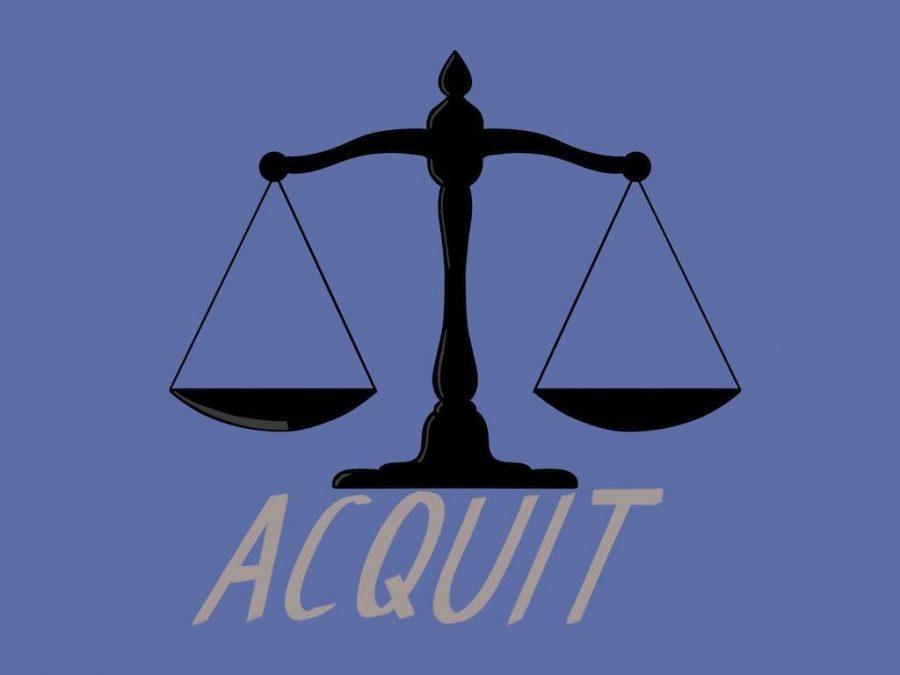Opinion | Acquit Trump of both impeachment articles
January 22, 2020
After 29 days of waiting, Rep. Nancy Pelosi, D-Calif., finally submitted two articles of impeachment against President Donald Trump to the Senate. The Senate must now conduct its own trial presided over by Chief Justice John Roberts and decide to convict or acquit Trump on each count.
The Senate would be starkly opposing the public interest by voting to convict Trump. Removal would create a precedence of impeaching and removing presidents based on miniscule evidence at best and pure speculation and deliberate misinterpretations of law at worst.
The entire process from start to finish has been a dog and pony show. Pelosi has claimed that this is a “sad” and “solemn” moment for the Democratic party to have to impeach the president, but when the articles were passed in the House, Pelosi had to quickly prevent her colleagues from applauding.
When signing the articles, she deliberately signed her name one letter at a time, each with a separate pen to be given out as trophies. This is typically reserved for major accomplishments, not “somber” resolutions. Her true motives have been palpable since day one: impeach and remove Trump before the next election. Impeachment was inevitable as soon as Hillary Clinton conceded the presidential race on Nov. 8, 2016. This has clearly been articulated by Pelosi herself.
When asked to respond to how quickly the impeachment trial has been moving, Pelosi said, “It’s been going on for 22 months, okay? Two and a half years, actually.”
This is particularly interesting, considering the Ukraine scandal only began in approximately September of 2019 with a rumor of a potential whistleblower within the Trump administration.
The impeachment vote itself was almost entirely along party lines, with the exception of two Democrats voting with the Republicans on the first article and three on the second. Considering impeachment is inherently a political process — and not an unbiased criminal or civil trial — it’s expected that votes will generally align with each party’s agenda. However, not even the Clinton impeachment was as polarizing as this one, because many representatives from both parties recognized that the articles were credible. In this case, the articles are a milquetoast attempt at pinning Trump for acting within his authority.
The first article of impeachment details Trump’s alleged “abuse of power.” It claims Trump pressured Ukraine to publicly announce an investigation into Joe Biden, a political opponent, and into Ukraine interference in the 2016 election while military aid was suspended. This was purportedly malicious because Trump released the military aid “faced with the revelation of his actions.” This is extremely vague and a watered-down version of their previous “bribery” charge.
“Wherefore President Trump, by such conduct, has demonstrated that he will remain a threat to national security and the Constitution if allowed to remain in office, and has acted in a manner grossly incompatible with self governance and the rule of law, President Trump thus warrants impeachment and trial, removal from office, and disqualification to hold and enjoy any office of honor, trust, or profit under the United States,” the first article says.
The first claim, that Trump was withholding funds for political gain, is entirely unfounded. Not a single witness called upon by the House Judiciary committee had any first-hand account of Trump claiming his actions were for personal benefit. Meanwhile, Ukranian president Volodymyr Zelensky said he did not believe he was being blackmailed to investigate. Without the threat of blackmail and with the aid eventually released before any form of payment by the Ukrainian president was given to Trump, it is nearly impossible to claim abuse of power. This article of impeachment more closely describes the appearance of abuse of power, which is far from a credible argument to impeach a president.
The second article of impeachment, “obstruction of Congress,” somehow holds even less water. Obstruction of Congress is a fabricated term that is a feeble version of the serious obstruction of justice charge. Unlike obstruction of justice, obstruction of Congress has no precedent in previous impeachment cases. This article simply claims that Trump abused his executive privilege by preventing testimonies of potential witnesses and documents despite subpoenas.
“In response, without lawful cause or excuse, President Trump directed Executive Branch agencies, offices, and officials not to comply with those subpoenas,” the second article says. “President Trump thus interposed the powers of the Presidency against the lawful subpoenas of the House of Representatives, and assumed to himself functions and judgments necessary to the exercise of the ‘sole Power of Impeachment’ vested by the Constitution in the House of Representatives.”
This is a complete derision of the concept of separation of powers. Standard procedure for subpoenas of the executive branch are to file a civil lawsuit and have the Supreme Court rule if the evidence is crucial enough to be delivered to the public sphere, such as in United States v. Nixon. Only if Trump were to defy a judicial ruling would he be in violation of contempt of court.
Pelosi said in a speech that Trump is “impeached forever” and there is nothing the Senate can do to change that. While this is true, the Senate can acquit Trump from these asinine charges and prevent this circus from continuing.
Hayden primarily writes about politics for The Pitt News. Write to Hayden at hwt3@pitt.edu.



